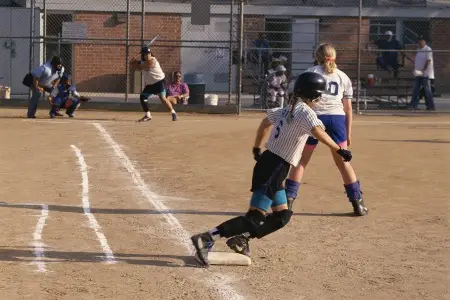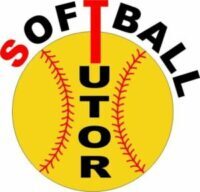
Baserunning is a skill that is sometimes thought of as an easy skill that does not need as much work as hitting for example. At least until we are in a game and a base runner is called out for missing a base, or runs into a fielder with a ball with the base empty behind them. This is why softball baserunning analysis is an important component of your coaching so that your team can run with confidence and you don’t have to worry about what is going to happen this time on the base path.
Baserunning Analysis Considerations
The best way to analyze softball skills is with video analysis. The ability to slow the motion down and see specific movements by the player will allow you to not only take not of the refinements but also allows the player to see it as well. This will be useful in the development of kinesthetic awareness. With baserunning you can also use a stopwatch as well as incorporate obstacles and activities that simulate real game situations
Technical / Tactical Skill Factors
We don’t always consider it but baserunning is a technical and tactical skill. Running form can have an affect on the amount of speed that the runners can have. Adding knowledge of the game and instinct with deliberate practice will have a huge effect on the performance outcomes of your team.
Some Technical Errors for Baserunning
|
Technical Errors |
Improvement Strategies |
|
leaps for the base |
use cones for stopping distance |
|
makes the turn too wide |
use cones as guidelines |
|
hits the middle of the base |
color the corner in baserunning drills |
|
poor running mechanics |
develop in preparation phase |
Some Tactical Errors for Baserunning
|
Tactical Factors |
Improvement Strategies |
|
don’t know when to stop |
work with coaches |
|
not watching for signals |
practice drills |
|
inexperience |
add to practices |
|
don’t know the signals |
signal sheets |
Psychological Requirements
Softball is a game that has a lot of psychological barriers for athletes during competition. The psychology of baserunning requires skills that are going to have
- Narrow focus – watching the ball in the pitchers hand
- Confidence – sliding to evade a tag
- Emotional Control – being able to stay calm in a run down
- Concentration – watching and listening for the coaches
Some Psychological Challenges for baserunning
|
Technical Factors |
Improvement Strategies |
|
not aware of the defense |
use video tape |
|
not aware of runners ahead |
check before pitch |
|
not following the plan |
consider substitutions |
|
playing individually |
team work activities |
Physical Requirements
Softball is a power sport that requires the following biomotor skills:
- Coordination – sliding, timing the pitch and the lead off
- Balance – pop up slide, most efficient starting position, leaving the batters box
- Speed strength – push off the base in a pop up slide
- Maximum strength – pushing off the base
- Flexibility – sliding
- Agility – evading a tag, run down
Baserunning Analysis
Some Physical Challenges for throwing
|
Technical Factors |
Improvement Strategies |
|
lack of speed |
train in general preparation |
Performance Outcome Factors
All softball skills are executed with a desired outcome. That outcome however can be broken down just as the skill itself is. Here are some expected outcomes that you might have.
|
Expected Outcome |
Mechanics / Biomechanics |
|
safe at the next base |
body upright on acceleration |
|
takes most efficient path |
hits the inside corner of base |
|
maximizes bases advanced |
watching the defense and coaches |
|
follows coaches signals |
looks up at appropriate times |
|
is aware of their surroundings |
takes advantage of errors |
Interventions
As coaches, error detection and correction is what we do. There is a time and a place however for that activity to occur. During competition is generally not the time. Following is a few recommended paths you can take to help your players improve their skills.
|
Intervention |
Timing |
|
Break down the skill |
During practice |
|
Kinesthetic feedback |
During practice |
|
Skill instruction |
During practice |
|
Provide a mentor |
During practice |
